TODAY’S READING IN THE OLD TESTAMENT- GENESIS 20:1-22:24
As we read the full story of Abraham in the Book of Genesis we can’t help but notice a weakness in his character. When he feared his personal safety, he sometimes would lie to protect himself. Abraham’s sin nature was bent towards acts of self-interest and self-preservation. Although he loves and believes God, his obedience is partial, and his behavior is far from perfect.
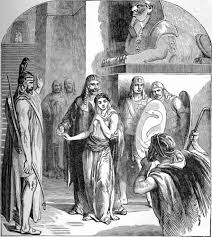
In Genesis 20 Abraham lies to King Abimelech. He hides the fact that Sarah is his wife and tells Abimelech that she is his sister. This is a half-truth. Therefore, it is a half-lie. Sarah is actually his half-sister (Genesis 20:12) from another mother. His fear of Abimelech prompts him to practice a deceit that he and Sarah planned many years earlier (Genesis 20:13). Abraham would break the 9th commandment and give a false witness about his wife. Abimelech, not knowing Sarah was married, takes her to be his own. God intervenes before Abimelech can touch her. He speaks to Abimelech in a dream, calling Abraham “a prophet”, and calling Abimelech to restore Sarah to Abraham or die (Genesis 20:7).
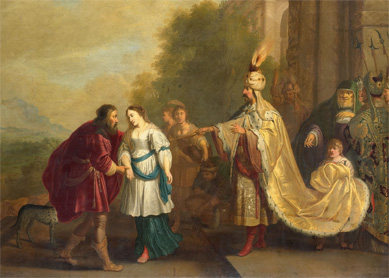
This is the second time that Abraham tells a high official this lie about his wife. In Egypt, he told Pharaoh and his officials that Sarah was his sister, withholding the fact that he was married to her. This violation of integrity brought plagues on the house of Pharaoh (Genesis 12:10-20). Lies bring trouble. Nevertheless, God is gracious and faithful to His covenant commitment to Abraham. The good news is that God uses imperfect people. He continues to work in Abraham’s life and test his love and obedience.

In Chapter 21, Isaac is born. “The Lord did for Sarah what He had promised” (Gen 21:1). Sarah’s laughter of unbelief is turned to the laughter of rejoicing. She could say what Mary, the mother of Jesus, would say two thousand years later, “For the Mighty One has done great things for me!” (Luke 1:48).
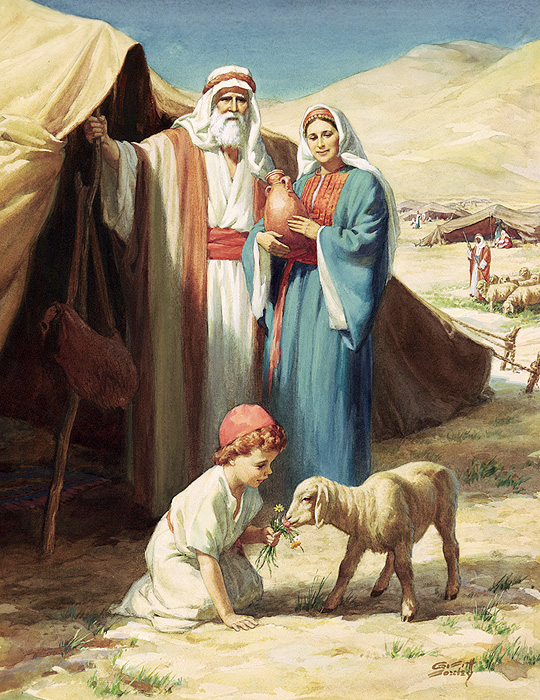
As Isaac grew up, he had to face the mocking of Hagar’s son, Ishmael. In the New Testament we will see how Isaac is a type of the Spirit, and Ishmael is a type of the flesh (Galatians 4:22-31). Isaac is the child of the Promise. Ishmael is the child of a failure of faith. Sarah represents a ministry of grace. Hagar represents the old covenant of the law that brings forth the works of the flesh and results in bondage. The flesh will mock the Spirit. The Spirit and the flesh are in conflict with each other.
Galatians 5:17 For the flesh sets its desire against the Spirit, and the Spirit against the flesh; for these are in opposition to one another.
And so were Ishmael and Isaac.
A Christian is born again by the Holy Spirit and by God’s grace, not through any justifying works of the flesh or slavish attempts to conform to the Law. Therefore, the Christian is to trust God’s Promise, Christ, rely on the Holy Spirit and put away the carnal imitations of religious conformity and legalism that devalues the work of the Spirit. Just as Sarah demanded that Hagar and Ishmael be put away, the New Covenant of God’s grace demands that the Old Covenant of religious striving in the flesh be put away. By the works of the law no one can be justified (See Galatians 4:22-31; Romans 3:20).
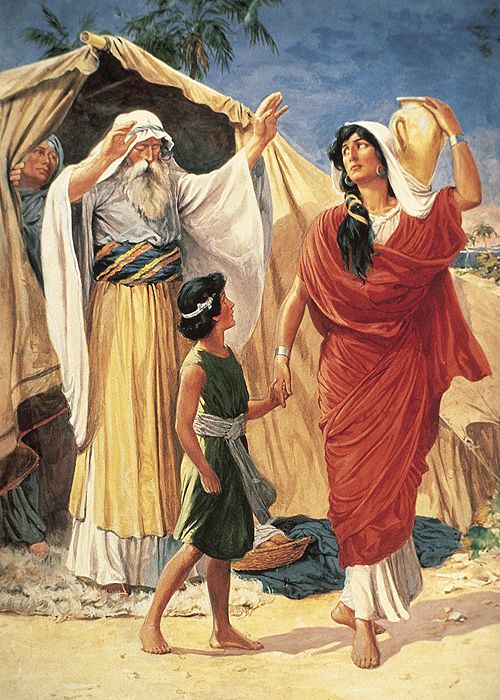
God does not abandon Hagar and her son. When they are in the wilderness with a failing water supply, the Lord opens her eyes and enables her to see that God’s amazing grace has provided for her a well of life-saving water. “God was with the lad and blessed him” (Genesis 21:20), and would make him the father of the Arab nations. God’s ear is available to the heart cry of all nations. As God blesses Abraham and Isaac, He has the blessing of Ishmael and all nations in view. For through the Promised Seed, “all the families (nations) of the earth will be blessed” (Genesis 12:3).
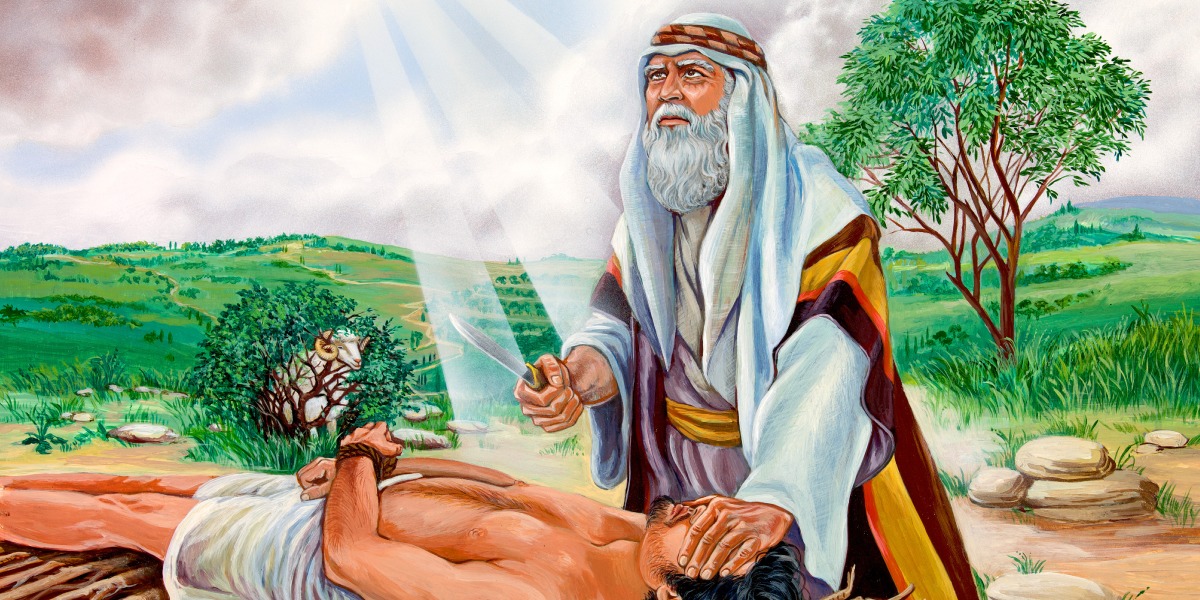
In Genesis 22 we see a foreshadowing of the gospel of Christ as Abraham, the Father, takes his son, his only Son, to the mountains of Moriah (‘Moriah’ means “seen of God’ or ‘center stage’) in an act of love and obedience and places him on the altar of sacrifice. This location is the same shelf of rock where God the Father will send His only begotten Son to be sacrificed on the altar of the cross. This geographical area is the same as the threshing floor of Araunah (2 Kings 24), which King David purchased, not without cost, out of a love for God, to be the temple mount in Jerusalem. This geographical area is the same as Mt. Calvary where Jesus was crucified.
When Isaac and Abraham reach the top of the mountain, Isaac asks, “Where is the lamb for the burnt offering?” Abraham said, “God will provide himself the lamb for the burnt offering.” This was a prophetic statement. Although Abraham was asked to put Isaac on the altar, God’s plan had been settled before the foundation of the world. He had provided a substitute for Isaac on the altar. Who was that substitute? The lamb of God who takes away the sin of the world (John 1:29). When Abraham bound his son and laid him on the altar, and stretched out his knife to slay his Son, he did it in faith, knowing that God had sworn by Himself and ratified His promise with a covenant that He would bring forth a nation from his seed. Therefore, Abraham believed that if God required his son to be slain, God would have to raise him from the dead. He believed that both he AND Isaac would return (Gen 22:5).
Hebrews 11:17-19 By faith Abraham, when he was tested, offered up Isaac, and he who had received the promises was offering up his only begotten son; it was he to whom it was said, “IN ISAAC YOUR DESCENDANTS SHALL BE CALLED.” He considered that God is able to raise people even from the dead, from which he also received him back as a type.
This is the final test in Abraham’s developing faith. Would he trust the Lord’s promise when he did not know WHEN it would come to pass, HOW it would come to pass, WHERE or WHY?
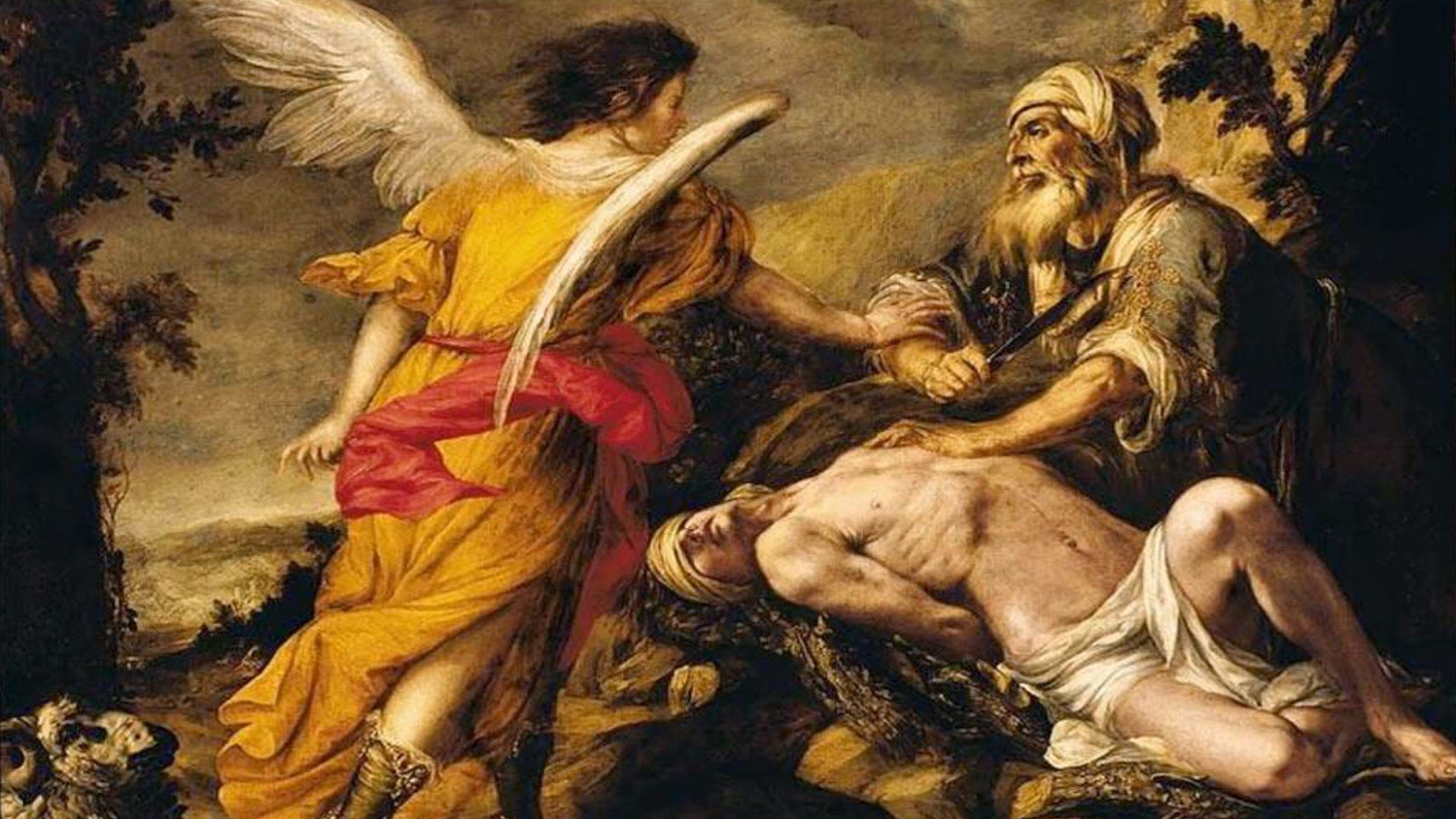
Finally, the Lord was providing the answer ‘WHEN’: He said, ‘Take NOW’. He was telling Abraham WHOM to take- “Your only son, whom you love”. He was telling him WHERE to go- “to the land of Moriah and on one of the mountains of which I will tell you.” (Gen 22:2)
Do we trust the Lord when we do not know the details? When we do not know the WHO, WHAT, WHERE, HOW, WHY and WHEN? Will we go on trusting like Abraham?
Abraham was tested and proved that he could trust God even when he did not know WHERE he was going.
Hebrews 11:8 By faith Abraham, when he was called, obeyed by going out to a place which he was to receive for an inheritance; and he went out, not knowing WHERE he was going.
Abraham was tested and proved that he could trust God even when he did not know HOW God would bring it to pass.
Genesis 15:7-8 And He said to him, “I am the LORD who brought you out of Ur of the Chaldeans, to give you this land to possess it.” He said, “O Lord GOD, HOW may I know that I will possess it?”
Abraham was tested and proved that he could trust God even when he did not know WHEN God would bring about His promise.
But could he trust God when he did not know WHY? On the mountains of Moriah, Abraham submits to the God whom He loves, the God whom he believes raises the dead.
As Abraham raises his knife, and stretches out his hand to slay his Son, the angel of the LORD called out to him from heaven,
Genesis 22:12 He said, “Do not stretch out your hand against the lad, and do nothing to him; for now I know that you fear God, since you have not withheld your son, your only son, from Me.”
Then Abraham raised his eyes and looked and saw God’s provision of a substitute for Isaac. He saw the ram caught in the thicket. But the gospel causes us to see a greater substitute- God’s sinless substitute who willingly and freely will lay down his life.
TODAY’S READING IN THE NEW TESTAMENT- MATTHEW 7:15-29
Once again Jesus talks about religious pretenders who say, “Lord, Lord”, do many miraculous works in His Name, but have no saving relationship with Him. Their lack of divine fruit betrays their false profession of allegiance to Christ, for Jesus sees their lives as “lawless”, meaning that there is nothing of that inward life that seeks to glorify God, love Him, serve Him, love His people, His commandments or love the lost.
The Lord Jesus is not just the role model of the Christian life, He IS the Christian life! The Christian life is not difficult. It is impossible! The only one who can live it is Jesus Christ.

That is why we are called to abide in Him and bring forth the fruit of the Spirit (John 15:4; Galatians 5:22).
Jesus came that we might have life (John 10:10). This implies that we do not have it and cannot have it apart from Him giving it to us. He said that He is the life (John 14:6). He said that the life is in Himself (John 5:26). The Apostle John echoes this truth saying that “the life is in the Son” (1 John 5:11). “He who has the Son has the life; he who does not have the Son of God does not have the life.” The Apostle Paul also emphasizes that this is the truth about the Christian life: “Christ ..is our life” (Colossians 3:3). “For me to live is Christ” (Philippians 1:21).
Jesus is the living standard for living the Christian life. By virtue of His indwelling life through the Spirit we are no longer living as those who are lawless, or living as a law unto ourselves, but we live according to the law of the Spirit of life in Christ Jesus (Romans 8:2), which is also called the royal law of love (James 2:8) and the perfect law of liberty (James 1:25).
TODAY’S READING IN THE BOOK OF PSALMS- PSALM 9:1-12;
This Psalm gives us the big picture, and reminds us not to forget God’s promised outcome.
It starts out with magnificent praise and then calls to mind that in the end the Lord will be the judge of all.
Psalm 9:8 And He will judge the world in righteousness; He will execute judgment for the peoples with equity.
It is a great picture of God bringing history to its rightful conclusion and repentant sinners to their merciful salvation in Christ.
Psalm 9:10 And those who know Your name will put their trust in You, For You, O LORD, have not forsaken those who seek You.
TODAY’S READING IN THE BOOK OF PROVERBS- PROVERBS 2:16-22;
WISE ADVICE: To avoid temptation and seduction, stay in fellowship with the Lord and His people, and walk in the light of His Word.
Proverbs 2:20 So you will walk in the way of good men and keep to the paths of the righteous.
PRAYER: Search me O Lord and show me if there is an area in my life where I am compromising my obedience to You, if I am skirting the truth in my conversations (as did Abraham in Egypt or with Abimelech), or if I am not properly esteeming the needs of others (as Abraham did when he showed such disregard for his wife). Thank you for investing in my education and testing the sufficiency of all You have promised me in Christ. Help me to trust You and follow You when I know not where, when, how or why. May I put all on the altar for You, trusting that You will fulfill Your every promise in Your time, Your way, in Your power, the power of Your resurrection and Your Life.
– Pastor David
